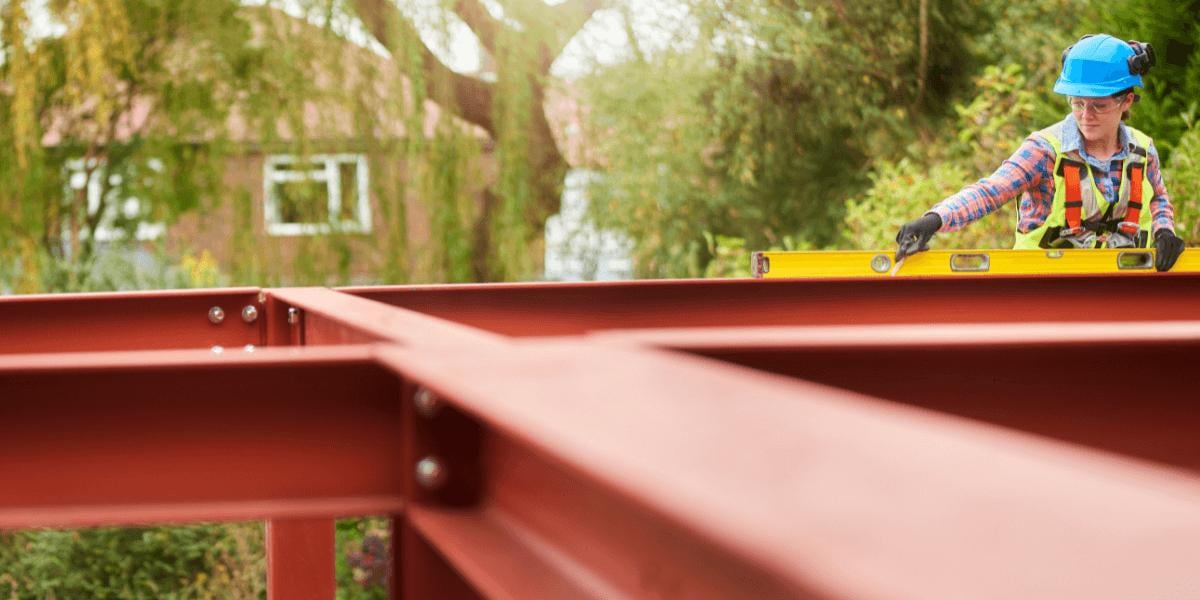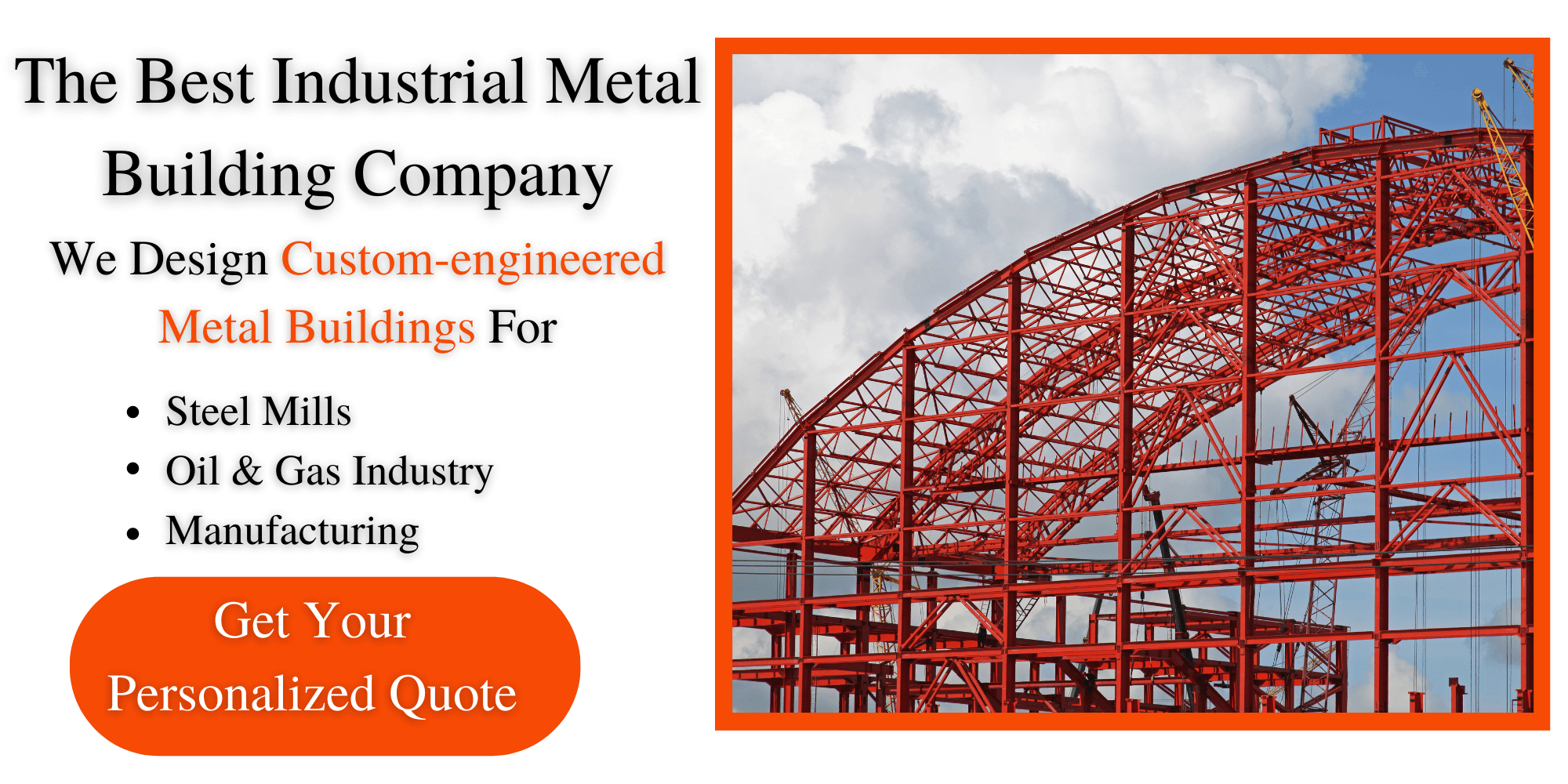What Do Structural Steel Erectors Do?
Do you know what a steel erector does?
Even if you don't, there's a good chance you've seen a steel erector in action without knowing anything about the profession.
If you've driven by a construction site for a steel building and you've noticed construction workers working on steel frames, you've seen a steel erector, also known as an ironworker, doing their job.
Steel erectors are an essential part of our success here at STEVENS, helping to build new steel structures and industrial metal buildings.
In the article below, we'll go over what a steel erector does and what it takes to become a steelworker.
Table of Contents
- What Do Steel Erectors Do?
- Structural Steel Erector Work Environment
- Becoming A Steel Erector
- Steel Erector Skills
- Work With The Best Steel Erectors with STEVENS
What Do Steel Erectors Do?
Structural steel erectors, or ironworkers, are construction workers specializing in working with steel.
They work in the construction and engineering sectors.
Steel erectors may work on projects of all sizes, from office developments, warehouses, and industrial units to multi-story residential apartments or car parks, sports stadiums, and bridges.
They are essential in building new steel structures like prefabricated industrial buildings.
They can also improve the quality of existing structures.
Steelworkers may work in one area, like a steel fabrication shop, creating steel components, or working on various sites for steel buildings.
Steel erectors follow appropriate safety guidelines to create, install, place, align and reinforce steel structures and frameworks.
They may work with steel beams, steel girders, columns, and various tools and heavy machinery.
Structural steel erectors may also assemble scaffold and steel structural components.
The job of a steel erector typically involves the following duties:
- Cutting and shaping steel
- Proper use of hand and power tools
- Installing steel girders, pipework, and beam sections to make steel framework
- Using elevated work platforms and scissor lifts
- Laying metal decking
- Fixing safety netting and edge rails
- Reviewing technical plans drawn by architects and engineers
- Planning project assembly
- Lifting and guiding components into position with tower cranes
- Lining up and leveling steelwork and bolting it in place
Structural Steel Erector Work Environment
The steel erector job title involves rigorous, dangerous work.
The work is physically demanding, and it's often conducted outside.
Steel erectors typically work at great heights as well.
But they do follow proper safety protocols, and they won't work at great heights if there are extremely wet, icy, or windy conditions.
As an ironworker, it's essential to be familiar with and practice strict workplace safety standards.
Steel erectors may wear additional safety devices like harnesses and install and use hardware for safety measures, such as decking, netting, or handrails.
Becoming A Steel Erector
Unlike many trades and professions, there isn't necessarily a single formal way that you become a successful steel erector.
However, most people interested in the profession will go through an apprenticeship to get experience in roles performed by steelworkers.
This is popular because it provides structure to the learning process and gives you the chance to be mentored by a seasoned professional.
If you're interested in an apprenticeship to become a steel erector, keep an eye out for professional organizations or unions.
As an apprentice, you will work alongside journeymen and master steel erectors doing basic tasks over a four-year period at approximately 2000 hours per year.
You'll also take supplemental classes for instruction related to your coursework, approximately 160 hours per year.
Once you finish your apprenticeship, you'll be a journeyman, and you'll qualify for full pay.

Steel Erector Skills
Additional skills that would be helpful to you if you're considering a job as a steel erector are:
- Knowledge of construction
- Logical and critical thinking skills
- Good physical fitness
- Confidence working at height
- Awareness and respect of health and safety guidelines
- Excellent team working skills
Becoming a steel erector typically does not require earning a college education, so you don't need to worry about getting a college degree.
The apprenticeship takes the place of a college education.
Work With The Best steel erectors with STEVENS
The job of a steel erector can be challenging, but it's also gratifying, especially if you work for a company like STEVENS.
STEVENS offers high-quality, pre-engineered steel buildings, and can work on almost every steel structures.
Our steel erectors will help you customize your facility to suit your exact needs, supply, and erect your pre-engineered steel building.
Our team of steel erectors takes pride in the relationships they build with their clients.
They will ensure that they meet their specific needs and requirements for every steel building project.
If you're interested in a steel building project with a leading steel building erector, STEVENS, click the button below to contact them today.
.gif?width=1200&name=Do%20You%20Need%20A%20Metal%20Building_%20(1).gif)

No comments:
Post a Comment